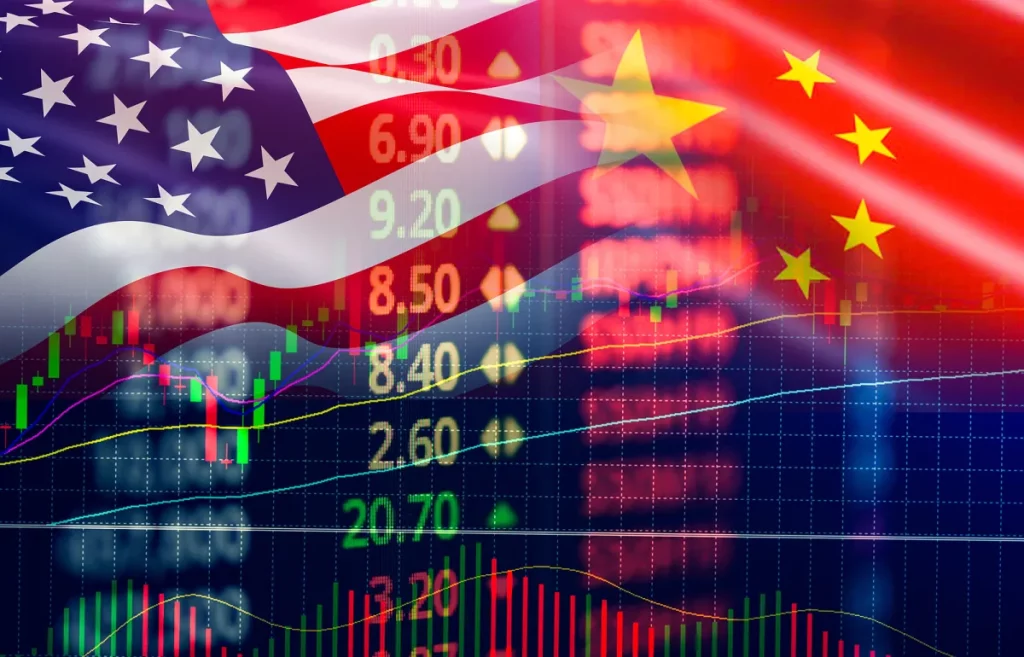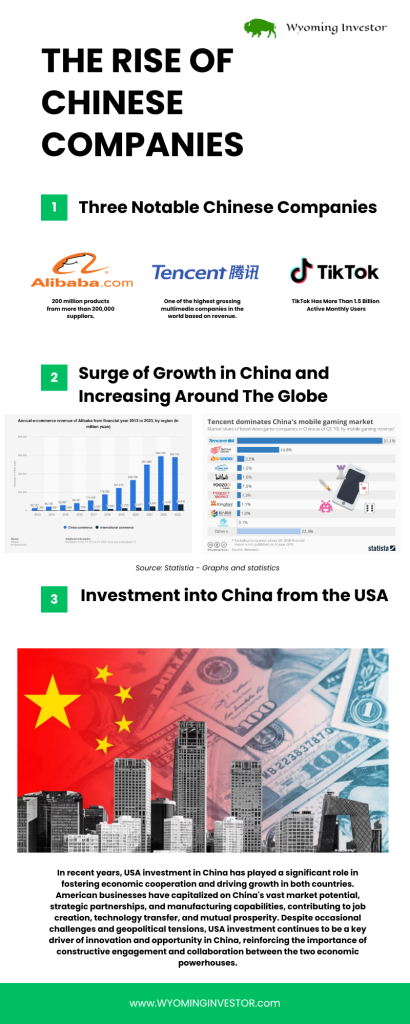In recent decades, the global economic landscape has witnessed a seismic shift with the emergence of Chinese companies as major players on the international stage. Firms like Alibaba, Tencent, and TikTok have not only redefined the business landscape in China but have also made significant inroads into markets worldwide. Their success story is a testament to China’s economic prowess and the transformative power of globalization.
Alibaba: Redefining E-commerce
Alibaba Group Holding Limited, founded by Jack Ma in 1999, is arguably one of China’s greatest success stories. Initially launched as a business-to-business (B2B) marketplace, Alibaba has expanded its operations to encompass a wide array of e-commerce services, including business-to-consumer (B2C) platforms like Tmall and consumer-to-consumer (C2C) platforms like Taobao.
Alibaba’s success can be attributed to its innovative business model, which leverages technology to connect buyers and sellers, streamline transactions, and provide a seamless shopping experience. With a market capitalization surpassing that of many established Western companies, Alibaba has become a global powerhouse, competing with the likes of Amazon and eBay.
The company’s reach extends far beyond China, with a significant presence in markets across Asia, Europe, and beyond. Alibaba’s international expansion has enabled it to tap into the growing demand for Chinese goods and services, while also facilitating cross-border trade and commerce.
Take a look at The Rise of Chinese Companies Infographic.
Tencent: Leading the Way in Gaming and Social Media
Tencent Holdings Limited is another Chinese tech giant that has achieved remarkable success on the global stage. Founded in 1998, Tencent initially gained prominence as a provider of internet and mobile services in China. However, it is perhaps best known for its gaming and social media platforms, including WeChat, QQ, and Honor of Kings.
Tencent’s dominance in the gaming industry is particularly noteworthy, with titles like League of Legends and PUBG Mobile attracting millions of players worldwide. The company’s strategic investments in both domestic and international gaming studios have further solidified its position as a global leader in the gaming space.
In addition to gaming, Tencent has made significant inroads into the social media and entertainment sectors, with WeChat emerging as one of the world’s largest messaging platforms. The app’s integrated ecosystem, which includes features like mobile payments, gaming, and e-commerce, has made it indispensable for millions of users both in China and abroad.
TikTok: Revolutionizing Short-form Video Content
TikTok, owned by the Chinese company ByteDance, has taken the world by storm with its addictive short-form video content. Launched in 2016, TikTok has quickly become one of the most popular social media platforms globally, with over a billion active users.
The app’s success can be attributed to its user-friendly interface, innovative content creation tools, and algorithmic feed, which curates personalized content for each user. TikTok’s ability to capture the zeitgeist and appeal to younger audiences has helped it gain traction in markets around the world, including the United States.
However, TikTok’s rise has not been without controversy, particularly regarding data privacy and security concerns. The company has faced scrutiny from regulators in various countries, including the United States, over its handling of user data and its ties to the Chinese government. Despite these challenges, TikTok continues to thrive, with plans for further expansion and diversification in the works.
Comparison with U.S. Counterparts
While Chinese companies like Alibaba, Tencent, and TikTok have achieved significant success on the global stage, they often find themselves compared to their American counterparts, such as Amazon, Facebook (now Meta Platforms), and Instagram (owned by Meta Platforms).
In terms of market capitalization and revenue, companies like Alibaba and Tencent are often on par with or even surpass their U.S. counterparts. However, there are notable differences in their business models, strategic priorities, and regulatory environments.
For example, Alibaba’s e-commerce ecosystem differs from Amazon’s in terms of its focus on third-party sellers and cross-border trade. Similarly, Tencent’s emphasis on gaming and social media sets it apart from companies like Facebook, which derive revenue primarily from advertising.
Additionally, the regulatory landscape in China differs significantly from that of the United States, with Chinese companies often subject to stricter oversight and government scrutiny. This can pose challenges for expansion into international markets, as seen in the case of TikTok’s struggles to gain regulatory approval in certain countries.
Despite these differences, the success of Chinese companies on the global stage underscores the increasingly interconnected nature of the global economy and the growing influence of emerging markets like China. As these companies continue to innovate and expand their reach, they are reshaping industries and challenging established norms, paving the way for a more diverse and dynamic global business landscape.


